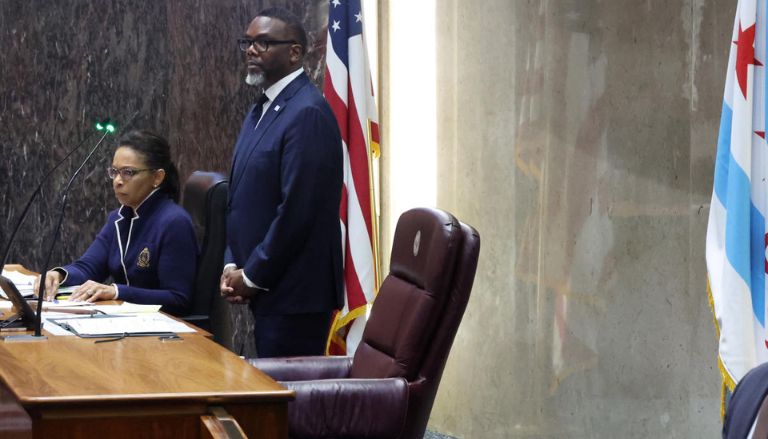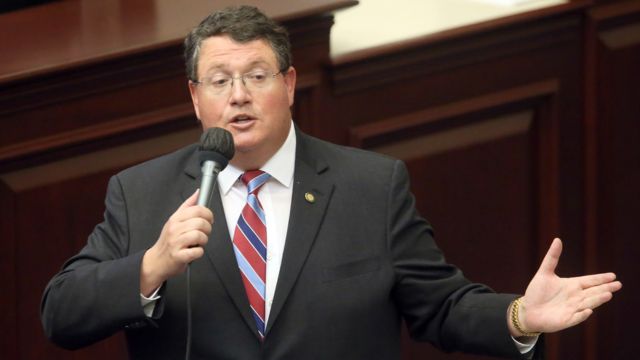Rating agency S&P lowered the rating of the city of Chicago’s general obligation debt late Monday. They did this because the recently passed 2025 budget was structurally imbalanced, there aren’t many ways for the city to get new money in the future, and city leaders don’t want to cut spending.
A press statement from S&P analyst Scott Nees said that Mayor Brandon Johnson’s budget for 2025 left a “sizable structural budgetary imbalance” that will make it harder to balance the budget in 2026 and the years after that.
It could cost the city more to borrow money for long-term projects like Johnson’s $1.25 billion housing and development bond, which is set to go on sale early this year. A downgrade would also hurt the city’s image.
Jill Jaworski, the city’s chief financial officer, didn’t agree with the downgrade. She said in a statement that the rating doesn’t “accurately reflect the strength of the City’s credit” or its ability to pay its large pension and debt responsibilities.
In November, S&P put the city on credit watch and told its leaders not to give up on a key long-term pension reform or depend too much on one-time fixes to close its budget gap. The agency found that the mayor’s total spending plan did not solve the city’s long-term budget problems, even though he chose to keep the supplemental pension policy that Lori Lightfoot started, which added $272 million to the city’s pension funds.
Johnson said in the statement that the S&P decision “does not accurately reflect our fundamental economic strength and the steps we’ve taken to address legacy issues.”
It was stated in the release that he was still committed to working together with the City Council to achieve structural balance and improve Chicago’s financial future.
He talked about a lot of big projects, such as the center for quantum computing on the South Side of the city, the new neighborhoods around the United Center, and the extension of the CTA Red Line.
“We will face these problems head-on, as Chicago has always done, and we will work with everyone to make long-lasting rules that show our shared dedication to progress and responsibility,” Johnson said in the statement.
S&P says that the city’s BBB rating means it has “adequate capacity to meet financial commitments,” but the agency also says it sees the city as more likely to be affected by “adverse economic conditions.”

When it comes to investment grade, BBB is one step up from BBB-, which is still one step up from junk.
Annette Guzman, Johnson’s budget director, said last month that underlying changes to the city’s budget would take time and pushed against a downgrade.
Soon after the budget was passed, Fitch Ratings and other financial experts praised the city for keeping the extra payments that were needed to keep the pension plans alive. Plus, they said that the city filled in a big chunk of the 2025 budget gap—about 30%—with one-time money.
Moody’s, one of the other big rating agencies, didn’t change its rating of the city after the budget passed. It stayed at Baa3+, which is one level above junk.
As of late December, Moody’s Vice President David Levett said that the budget “does not fundamentally change the city’s credit trajectory.” “The fiscal 2025 budget continues in a good way the city’s much better ways of funding pensions.” One big reason why the city’s credit score is getting better is that it has been able to fund its pensions better.




Leave a Comment